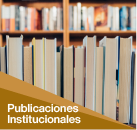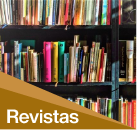Mostrar el registro sencillo del ítem
Valoración del uso de la Lengua Materna Quechua a través de los Cuentos Tradicionales
| dc.contributor.advisor | Mora Leython, Farah Soraya Milena | |
| dc.contributor.author | Ojeda Quispe, Yober | es_PE |
| dc.date.accessioned | 2025-06-02T09:32:58Z | |
| dc.date.available | 2025-06-02T09:32:58Z | |
| dc.date.issued | 2024-08-14 | |
| dc.identifier.uri | http://repositorio.pukllasunchis.org/xmlui/handle/PUK/173 | |
| dc.description.abstract | La tesis "Valoración del uso de la Lengua Materna Quechua a través de los Cuentos Tradicionales" explora la importancia de preservar y revitalizar el quechua mediante cuentos tradicionales en la educación. La investigación tiene como objetivo principal describir cómo padres, docentes y estudiantes valoran la lengua materna quechua en la Escuela Andrés Avelino Cáceres. Se adopta un enfoque cualitativo utilizando entrevistas y observaciones para la recolección de datos. La investigación aborda la pérdida del quechua, influenciada por el currículo educativo y la marginación de prácticas culturales ancestrales. La pregunta central es: ¿Cuál es el valor asignado a la lengua materna quechua en la mencionada escuela? Los resultados indican que los cuentos tradicionales en quechua son cruciales para la transmisión de conocimientos ancestrales y el fortalecimiento de la identidad cultural. Los cuentos reflejan vivencias comunitarias y promueven el reconocimiento de la cosmovisión andina. Las conclusiones destacan la riqueza de los conocimientos ancestrales y la importancia de la lengua quechua para la identidad cultural. Se recomienda fomentar estrategias similares en otros contextos educativos y se incluye una lista de referencias y anexos relevantes. | es_PE |
| dc.description.abstract | Abstract The Thesis “appreciation of the Quechua mother tongue through traditional stories” is a research that addresses the importance of preserving and revitalizing the Quechua mother tongue. In this context, strategies are considered as a fundamental part for the transmission of ancestral knowledge through the use of mother tongue as a teaching vehicle, which this can facilitate in their learning process of students. The focus of the research is qualitative, as interviews were used as an essential resource to obtain the necessary data. The technique of observation was also applied to further enrich and reinforce the information obtained. Next, the participant population is composed of the context studied, the group of participants, qualitative approach, the research design and the different phases. Below, we have the results that revealed the wealth of ancestral knowledge that community sages treasure, wisdom-filled legacies. Immediately, the interviewees indicated that the mother tongue is of utmost importance, as it strengthens the cultural identity and sense of belonging of each, alleging that they are part of an ancestral culture. Finally, it represents the culmination of this paper, addressing the conclusions derived from the research offering final recommendations, for future studies or actions, providing a list of bibliographic references used, representing relevant annexes that support and complement the content of the paper. Keywords: Appreciation, mother tongue. | es_PE |
| dc.description.abstract | Pisi rimayllapi willasayki Kay llankana “runa siminchik waqaychay ñawpa willakuykunawanqa”, rimarinqan imaynatachus t’aqwirinkun may nishu allin qhiswa runa siminchis waqaychay, kawsarichiy kasqanmanta. Kaypiqa, qhawasun may allin ñanintas purisunman ñawpa taytanchiskunaq yachayninta hap’inanchispaq, ahinapi qhiswa simiq ukhunta, yachachiyta aparispa, irqikunaq allin yachayaninpi wiñarinankupaq. kay t’aqwiypa qhawariyniqa cualitativo nisqan imaraykuchus tapukuykunan nishu allin karan yachaykuna tarinapaq. Chayamantapas, qhawarikuranmi huk niray puririy, kay yachayakunaq allin t’ikarinanpaq astawan kallpacharikunanpaqwan. Hinallataq kachkan maypichus llankakuran chaymanta, pikunawanchus llank’akuran, chaymantapas enfoque cualitativo kachkallantaq, diseño ima, hinallataq imaymana fase nisqakunawan. Chay qatiqnimantaq nuqayku chayarayku maskhasqaykuman imaynatachus ñawpa taytakunaq yachayninta ayllu ukhupi yachaqkunaq waqaychasqankuta tukuy imaymana askha ñawpa yachaykuwan hunt’a kasqanta. Chaymantapas tapusqa runakunan ninku kay runa simiqa ñishu allinmi. Imaraykuchus runakaynimpin kallpachan llaqtampa yachayninwan kawsaypi, hinallataqmi maymantachus sapanka huk kasqanmanta. ñawpa kawsaymanta kasqankuta qhawarichispa Tukunanchispaqtaq, kachkan kay llank’aypa tukupayninmanta, llak’aypaq allin kaq tukuynimpa taripasqamanta, ahinapi allin kaq tukupay yachayta qurispa, qhipaman llankarinankupaq utaq rurarinankupaq referencias bibliogaficas rurasqa qhillqakunawan qurispa, riqsirichintaq allin kaq qimiriq anexokunata, llankay hunt’apaqta. Chanin rimaykuna: Waqaychay, qhiswa simi rimay. | es_PE |
| dc.format | application/pdf | es_PE |
| dc.language.iso | spa | es_PE |
| dc.publisher | Asociación Pukllasunchis | es_PE |
| dc.rights | info:eu-repo/semantics/openAccess | es_PE |
| dc.rights.uri | https://creativecommons.org/licenses/by-nc-sa/4.0/ | es_PE |
| dc.subject | Educación Intercultural Bilingüe | es_PE |
| dc.subject | Valoración | es_PE |
| dc.subject | lengua materna quechua | es_PE |
| dc.title | Valoración del uso de la Lengua Materna Quechua a través de los Cuentos Tradicionales | es_PE |
| dc.type | info:eu-repo/semantics/bachelorThesis | es_PE |
| dc.type.version | info:eu-repo/semantics/publishedVersion | es_PE |
| dc.publisher.country | PE | es_PE |
| dc.subject.ocde | https://purl.org/pe-repo/ocde/ford#5.03.01 | es_PE |
| renati.advisor.orcid | https://orcid.org/0009-0005-8590-3536 | es_PE |
| renati.type | https://purl.org/pe-repo/renati/type#tesis | es_PE |
| renati.level | https://purl.org/pe-repo/renati/nivel#tituloProfesional | es_PE |
| renati.discipline | 112096 | es_PE |
| renati.juror | Eguiluz Duffy, Cecilia María | es_PE |
| renati.juror | Villavicencio Callo Tanya | es_PE |
| renati.juror | Conde Marquina, Antonieta | es_PE |
| thesis.degree.name | Licenciado en Educación Primaria Intercultural Bilingüe | es_PE |
| thesis.degree.discipline | Educación Primaria Intercultural Bilingüe | es_PE |
| thesis.degree.grantor | Escuela de Educación Superior Pedagógica Privada Pukllasunchis | es_PE |
| renati.author.dni | 72309284 | |
| renati.advisor.dni | 09940004 |







